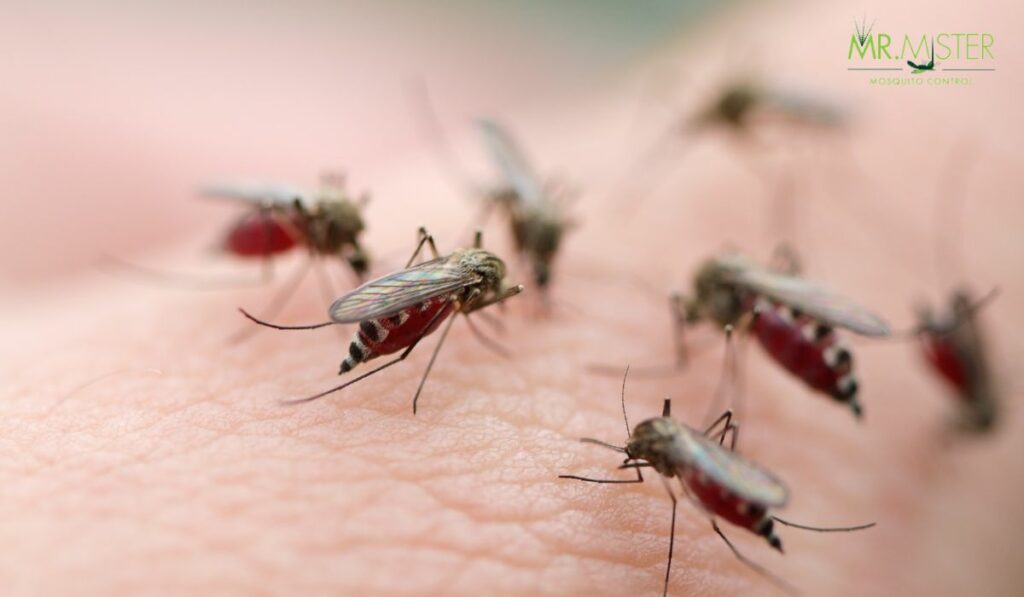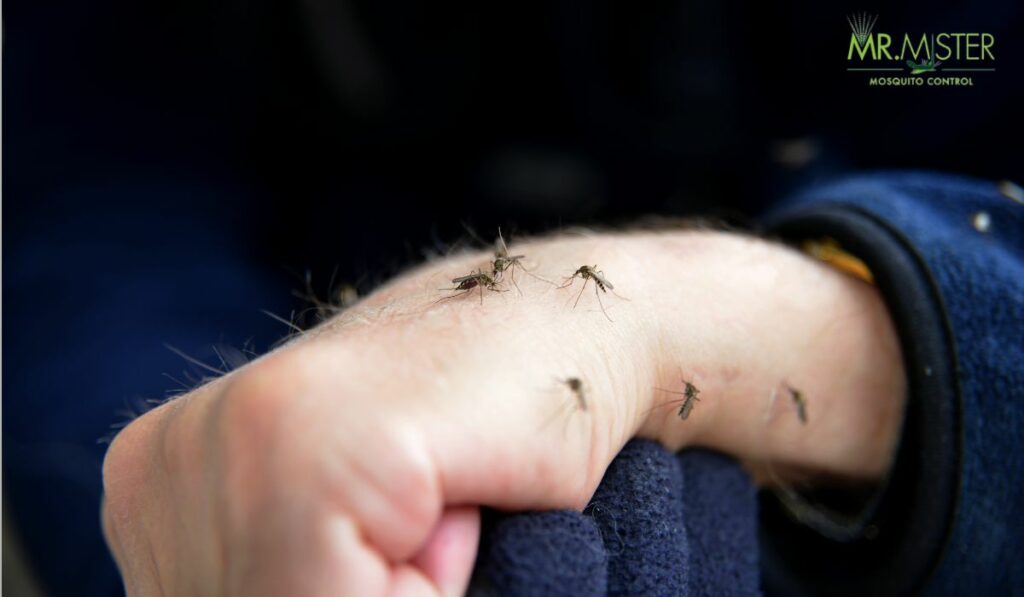Why Mosquitoes Are So Attracted To You
Mosquitoes are a nuisance that many of us have to deal with, especially during the warmer months.
They have a particular affinity for specific individuals, leaving them covered in itchy mosquito bites while others remain unscathed.
Have you ever wondered why mosquitoes are so attracted to some people and not others?
In this article, we will explore the science behind mosquito attraction, the factors that make some individuals more enticing to these pesky insects, and how you can protect yourself from their itchy bites.
The Science Behind Mosquito Attraction
Mosquitoes are drawn to their hosts by a combination of factors. One of the primary attractions is the carbon dioxide (CO2) we exhale when we breathe.
Mosquitoes have specialized receptors that can detect even small amounts of CO2 from a considerable distance.
This is why they swarm around humans, who exhale large quantities of CO2 with every breath.
Factors That Make Some People More Attractive to Mosquitoes
Genetic Factors
Genetics plays a significant role in determining how attractive you are to mosquitoes.
Some individuals are genetically predisposed to produce certain chemicals and compounds that make them more appealing to these insects.
These chemicals can affect your body odor, skin temperature, and more.
Body Odor
Body odor is another crucial factor in mosquito attraction.
The scent of your body can either attract or repel mosquitoes.
Certain scents, such as bacteria on your skin, can draw mosquitoes in.
This is why showering and using antibacterial soap can help reduce mosquito attraction.
Carbon Dioxide Emission
As mentioned earlier, the CO2 you emit while breathing is a powerful mosquito attractant.
The more you exhale, the more likely you are to attract mosquitoes.
This is why physical activities that increase your breathing rate, like jogging, can make you a target for these pests.
Skin Temperature
Mosquitoes are also drawn to differences in skin temperature.
When blood vessels dilate due to increased blood flow, your skin becomes warmer, attracting mosquitoes.
Additionally, mosquitoes are more attracted to warm skin, making individuals with higher body temperatures more susceptible.
Sweat and Lactic Acid
Sweating not only increases the humidity around you but also releases compounds like lactic acid.
Mosquitoes are attracted to the scent of sweat and the presence of lactic acid on your skin.
So, if you’ve been sweating, you’re more likely to be a mosquito target.
Clothing Choices
The colors you wear and the type of clothing you choose can also affect your attractiveness to mosquitoes.
Dark colors, especially red and black, can attract mosquitoes.
Loose-fitting clothing can create pockets of warm, humid air, which mosquitoes find appealing.
Blood Type
Believe it or not, your blood type can influence mosquito attraction.
Studies have shown that individuals with blood type O are more likely to be bitten by mosquitoes than those with blood type A or B.
It appears that mosquitoes have a preference for certain blood types.
Understanding Mosquito Behavior
To protect yourself effectively from mosquito bites, it’s essential to understand their behavior.
Mosquitoes are most active during dawn and dusk, so taking precautions during these times can be especially beneficial.
They are also attracted to standing water, where they lay their eggs.
Eliminating sources of stagnant water around your home can help reduce mosquito populations.
Natural and Chemical Repellents
Protecting yourself from mosquitoes involves using both natural and chemical repellents.
DEET-Based Repellents
DEET (N, N-Diethyl-meta-toluamide) is a potent chemical repellent that has been widely used for decades.
It works by confusing the mosquitoes’ sense of smell and makes it challenging for them to locate you.
DEET-based repellents are highly effective, but some people prefer natural alternatives due to chemical concerns.
Natural Repellents
Natural mosquito repellents include essential oils like citronella, lemon eucalyptus, and lavender.
These can be applied to your skin or used in candles and diffusers to deter mosquitoes.
While they may not be as long-lasting as DEET-based repellents, they offer a more natural option.
Tips for Avoiding Mosquito Bites
Mosquito-Proof Your Home
To keep mosquitoes out of your home, ensure your window screens are intact and doors are closed when possible.
Use mosquito nets while sleeping to prevent nighttime bites.
You can also use mosquito-repellent sprays or plug-in devices indoors.
Outdoor Mosquito Protection
When spending time outdoors, wear long-sleeved shirts and pants to minimize exposed skin.
Use mosquito repellent on exposed areas, and consider using fans to create a breeze that makes it difficult for mosquitoes to land on you.
Mosquito nets and citronella candles can also provide protection.
Conclusion
Understanding why mosquitoes are so attracted to specific individuals can help you take steps to protect yourself from their itchy bites.
Whether through genetic factors, body odor, or other attractants, mosquitoes have their preferences.
By using repellents, wearing the proper clothing, and eliminating mosquito breeding sites, you can reduce your attractiveness to these pesky insects and enjoy a mosquito-free environment.
FAQs
Are mosquitoes attracted to everyone equally?
No, mosquitoes are attracted to individuals based on various factors, including genetics, body odor, carbon dioxide emission, and clothing choices. Some people are more attractive to mosquitoes than others.
Can I change my attractiveness to mosquitoes?
While you can’t change your genetics, you can reduce your attractiveness to mosquitoes by using repellents, wearing appropriate clothing, and practicing good hygiene.
What is the best way to protect my home from mosquitoes?
To protect your home from mosquitoes, ensure your window screens are intact, use mosquito nets while sleeping, and consider using indoor mosquito-repellent devices.
What should I do if I get bitten by a mosquito?
If you get bitten by a mosquito, clean the affected area with soap and water and apply an anti-itch cream to reduce itching and swelling. Avoid scratching the bite to prevent infection.
Do electronic mosquito repellent devices work?
Electronic mosquito-repellent devices can be effective in some cases. They use sound or light to deter mosquitoes. However, their effectiveness may vary, and it’s essential to use them in combination with other preventive measures for better results.
Do certain perfumes or scents attract mosquitoes?
Yes, some perfumes and scents can attract mosquitoes. Floral and sweet fragrances can make you more appealing to these insects. To reduce your attractiveness to mosquitoes, consider using unscented or mosquito-repelling fragrances.
What are some natural ways to repel mosquitoes?
Several natural methods can help repel mosquitoes. Apart from using essential oils like citronella and lavender, you can also try planting mosquito-repelling plants like basil, rosemary, and marigolds in your garden. Additionally, using mosquito nets and screens in your home can be an effective natural solution.
Can certain foods affect mosquito attraction?
Yes, your diet can influence your attractiveness to mosquitoes. Some studies suggest that consuming foods high in potassium, like bananas, may make you more appealing to these insects. Spicy foods can also increase your body temperature, which might attract mosquitoes. Consider adjusting your diet if you want to reduce mosquito attraction.
Are there specific times of the day when mosquitoes are more active?
Mosquitoes are generally more active during dawn and dusk. These times are when they are most likely to seek out a blood meal. If you want to minimize your exposure to mosquitoes, it’s a good idea to take extra precautions during these hours.
Do natural repellents work as effectively as chemical ones?
Natural repellents can effectively deter mosquitoes, but they may not provide the same level of protection as chemical repellents like DEET. The effectiveness of natural repellents can vary from person to person. It’s a matter of personal preference, and some individuals opt for natural options due to concerns about the chemicals in DEET-based repellents.
* Schedule a Free Mosquito Control Consultation – 404-941-0720 *
* Guaranteed Results * 100% Biodegradable * Locally Owned







